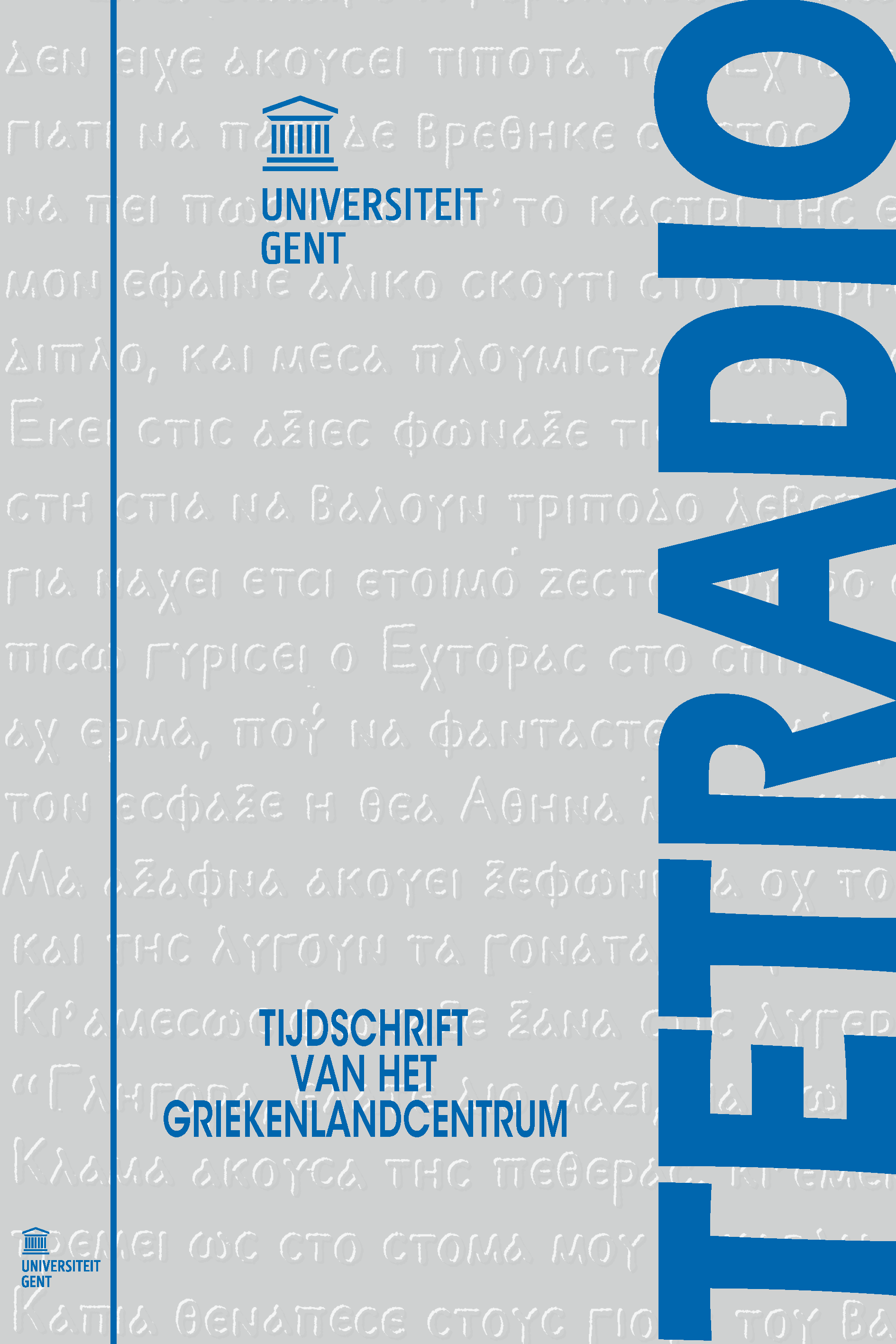Waar zijn de goden naartoe? Over monotheïsme, henotheïsme en andere ‘theïsmen’ in de Grieks-Romeinse wereld
- Peter Van Nuffelen
Abstract
Greco-Roman religion is usually defined as polytheistic. At the same time, the ancients recognised some form of unity in the seemingly endless number of deities. Scholarship still debates about the right labels to be used for ancient ideas about unity in the divine world, with henotheism and monotheism being most current. If debates about terms may seem just a scholar’s pastime, this contribution argues that the choice for a label often implies a particular position as to how the relationship between Greco-Roman religion and Christianity is conceived.Scholars insisting on henotheism tend to emphasise the difference between both and a break in the religious history with the transition from the one to the other, whereas scholars using monotheism tend to assume some form of continuity. This contribution traces some of these debates, using C. Castoriadis and J. North as examples. It then focuses on the way ancient authors conceived of the relationship between a belief in the unity of the divine and traditional cult practice, showing how the belief in the unity of the divine did not necessarily impact on traditional cult practice. At the same time, late antique pagans could use their monotheism to build bridges with Christians, who would, however, insist on the unity of cult practice and belief: in other words, one could not claim that the divine is one and worship at the same time different deities. This appeal to coherence found its root in imperial philosophy, which was now turned by Christians against the pagans who claimed to be the heirs of that tradition.
How to Cite:
Van Nuffelen, P., (2016) “Waar zijn de goden naartoe? Over monotheïsme, henotheïsme en andere ‘theïsmen’ in de Grieks-Romeinse wereld”, Tetradio 25(1): 4, 103–121. doi: https://doi.org/10.21825/tetradio.91852
Downloads:
Download PDF
View PDF
